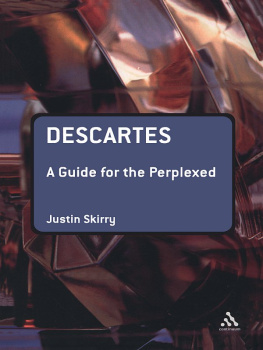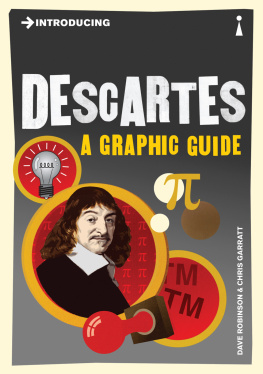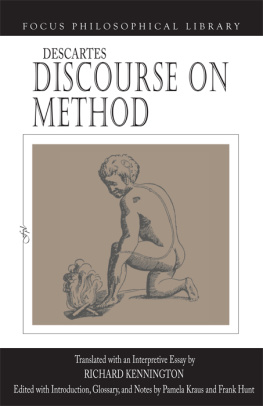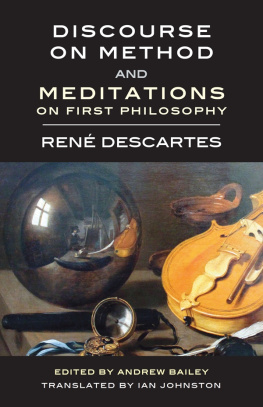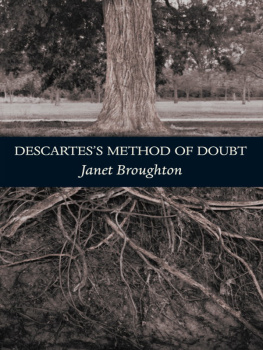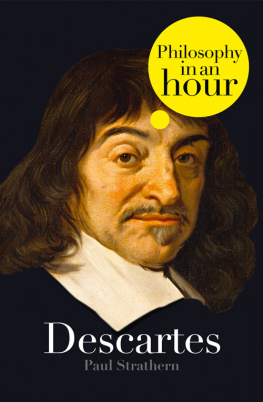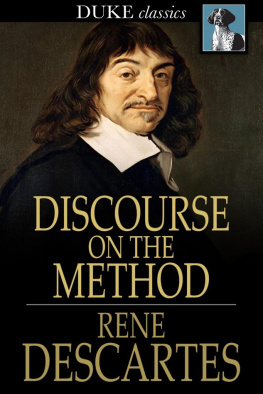
Great Clarendon Street, Oxford OX2 6DP
Oxford University Press is a department of the University of Oxford.
It furthers the Universitys objective of excellence in research, scholarship,
and education by publishing worldwide in
Oxford New York
Auckland Cape Town Dar es Salaam Hong Kong Karachi
Kuala Lumpur Madrid Melbourne Mexico City Nairobi
New Delhi Shanghai Taipei Toronto
With offices in
Argentina Austria Brazil Chile Czech Republic France Greece
Guatemala Hungary Italy Japan Poland Portugal Singapore
South Korea Switzerland Thailand Turkey Ukraine Vietnam
Oxford is a registered trade mark of Oxford University Press
in the UK and in certain other countries
Published in the United States
by Oxford University Press Inc., New York
Ian Maclean 2006
The moral rights of the author have been asserted
Database right Oxford University Press (maker)
First published as an Oxford Worlds Classic paperback 2006
All rights reserved. No part of this publication may be reproduced,
stored in a retrieval system, or transmitted, in any form or by any means,
without the prior permission in writing of Oxford University Press,
or as expressly permitted by law, or under terms agreed with the appropriate
reprographics rights organization. Enquiries concerning reproduction
outside the scope of the above should be sent to the Rights Department,
Oxford University Press, at the address above
You must not circulate this book in any other binding or cover
and you must impose this same condition on any acquirer
British Library Cataloguing in Publication Data
Data available
Library of Congress Cataloging in Publication Data
Descartes, Ren, 15961650.
[Discours de la mthode. English]
A discourse on the method of correctly conducting ones reason and seeking truth in the sciences / Ren Descartes; translated with an introduction and notes by Ian Maclean.
p. cm. (Oxford worlds classics)
Includes bibliographical references and index.
1. Methodology. 2. ScienceMethodology. I. Maclean, Ian. II. Title. III. Oxford worlds classics (Oxford University Press)
B1848.E5M33 2006 194dc22 2005019297
Typeset in Ehrhardt
by RefineCatch Limited, Bungay, Suffolk
Printed in Great Britain by
Clays Ltd, St. Ives plc., Suffolk
ISBN 0192825143 9780192825148
OXFORD WORLDS CLASSICS
For over 100 years Oxford Worlds Classics have brought readers closer to the worlds great literature. Now with over 700 titlesfrom the 4,000-year-old myths of Mesopotamia to the twentieth centurys greatest novelsthe series makes available lesser-known as well as celebrated writing.
The pocket-sized hardbacks of the early years contained introductions by Virginia Woolf, T. S. Eliot, Graham Greene, and other literary figures which enriched the experience of reading. Today the series is recognized for its fine scholarship and reliability in texts that span world literature, drama and poetry, religion, philosophy and politics. Each edition includes perceptive commentary and essential background information to meet the changing needs of readers.
Refer to the to navigate through the material in this Oxford Worlds Classics ebook. Use the asterisks (*) throughout the text to access the hyperlinked Explanatory Notes.
OXFORD WORLDS CLASSICS

REN DESCARTES
A Discourse on the Method of Correctly Conducting Ones Reason and Seeking Truth in the Sciences

Translated with an Introduction and Notes by
IAN MACLEAN

OXFORD WORLDS CLASSICS
A DISCOURSE ON THE METHOD
REN DESCARTES was born at La Haye near Tours on 31 March 1596. He was educated at the Jesuit Collge de la Flche in Anjou, and at the University of Poitiers, where he took a Licenciate in Law in 1616. Two years later he entered the army of Prince Maurice of Nassau in Holland, and met a local schoolmaster, Isaac Beeckman, who fostered his interest in mathematics and physics. After further travels in Europe he settled in Paris in 1625, and came into contact with scientists, theologians, and philosophers in the circle of the Minim friar Marin Mersenne. At the end of 1628 Descartes left for Holland, which he made his home until 1648; he devoted himself to carrying forward the mathematical, scientific, and philosophical work he had begun in Paris. When he learned of the condemnation of Galileo for heresy in 1633, he abandoned his plans to publish a treatise on physics, and under pressure from his friends consented to have the Discourse on the Method printed, with three accompanying essays on topics in which he had made discoveries. In 1641 his Meditations appeared, setting out the metaphysical underpinnings of his physical theories; these were accompanied by objections written by contemporary philosophers, and Descartess replies to them. His writings provoked controversy in both France and Holland, where his scientific ideas were banned in one university; his works, however (including the Principles of Philosophy of 1644) continued to be published, and to bring him notoriety and renown. In 1648 he accepted an invitation from Queen Christina of Sweden to settle in Stockholm; it was there he died of pneumonia on 11 February 1650.
IAN MACLEAN is Professor of Renaissance Studies at the University of Oxford and a Senior Research Fellow of All Souls College. Among his publications are The Renaissance Notion of Woman (1980, frequently reprinted), Meaning and Interpretation in the Renaissance: The Case of Law (1992), Montaigne philosophe (1996), Logic, Signs and Nature in the Renaissance: The Case of Learned Medicine (2001), and an edition of Cardanos De libris propriis (2004).
CONTENTS
ACKNOWLEDGEMENTS
I should like to record my gratitude for the kind assistance I received from the following colleagues and friends: Robin Briggs, John Cottingham, Dan Garber, Noel Malcolm, Michael Moriarty, and Richard Parish. I am also very grateful for the support and encouragement I received from Judith Luna of Oxford University Press.
INTRODUCTION
The publication in 1637 of an anonymous book in French entitled A Discourse on the Method of Correctly Conducting Ones Reason and Seeking Truth in the Sciences marks one of the pivotal moments of Western European thought; it was the work of a formidably clever, radical, rigorous thinker, who in this short, informally presented introduction to his work threatened the very foundations of many prevailing philosophical beliefs, and set an agenda for enquiry into man and nature whose effects have lasted up to the present day. In this introduction to his thought, Descartes set out his novel philosophical and scientificwhich reveal something of its early impact. I have not attempted comprehensively to cover the whole range of meanings which have been attributed to the Discourse; my aim is to set it in the context of the life of its author, to give some inkling of what Descartes himself was setting out to achieve by its publication, to indicate how he came to put its various components together and make it available to the public, and to suggest what its first readers might have made of it.
Next page

